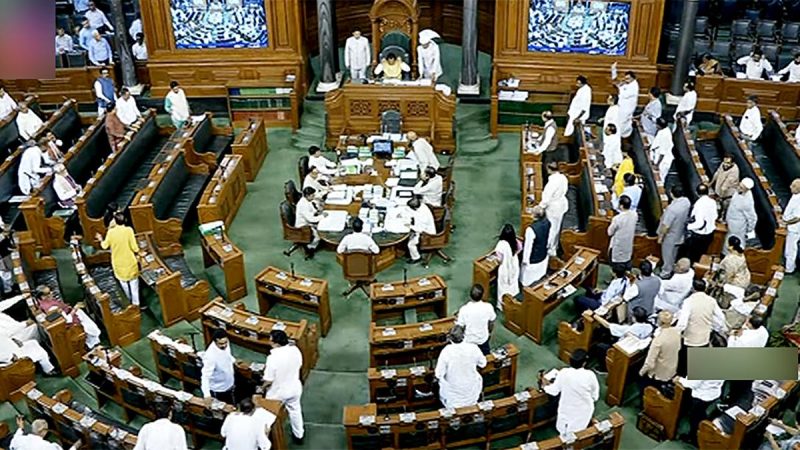What is Delhi Services Bill?
The Delhi Services Bill, officially known as the Government of National Capital Territory of Delhi (Amendment) Bill, 2023 has been passed with total 131 votes votes in favour and 102 against in Rajya Sabha. It aims to replace an existing ordinance that has caused conflicts between the Aam Aadmi Party, led by the Delhi CM Arvind Kejriwal and the Central Government.
The bill was introduced by the Union Home Minister, Amit Shah, in the Lok Sabha on August 3, 2023. It was passed by the Lok Sabha on August 6, 2023, and by the Rajya Sabha on August 7, 2023. The Government of National Capital Territory of Delhi (Amendment) Bill, 2023, also known as the Delhi Services Bill, was passed by the Indian Parliament on August 7, 2023. The bill gives the central government control over the appointment, transfer, and posting of all bureaucrats in the Delhi government.
Background of Delhi Services Bill
On 11 May, the Supreme Court granted the government of Delhi control over most services in the capital, except for public order, land and public matters. However, on 19 May, the Central Government introduced an ordinance that allowed the Delhi government to recommend matters related to transfer of postings, vigilance and other issues to the Delhi Lieutenant Government.
The Central Government’s ordinance was criticized by the AAP Government for attempting to control law and order and the bureaucracy in Delhi. The Delhi Service Bill was introduced to convert the ordinance into law, granting power to the centrally appointed bureaucrats to overrule the elected CM and senior officers in the Delhi Government.
Features of the Delhi Services Bill
- The Delhi Services Bill puts inquiries and suspension of officials in Delhi under the control of the central government.
- The Lieutenant Government will have sole discretion over various matters including recommendations from the National Capital Civil Service Authority and decision related to the Delhi Legislative Assembly.
- The National Capital Civil Service Authority will comprise the Chief Secretary of Delhi, the Principal Home Secretary of Delhi and the Delhi Chief Minister.
Here are some of the key provisions of the Delhi Services Bill
- The bill gives the central government control over the appointment, transfer, and posting of all bureaucrats in the Delhi government.
- The bill also gives the central government the power to create new posts and abolish existing posts in the Delhi government.
- The bill provides for a Joint Selection Committee (JSC) to be constituted for the appointment of bureaucrats in the Delhi government. The JSC will have equal representation from the central government and the Delhi government.
- The bill also provides for a mechanism for the resolution of disputes between the central government and the Delhi government on matters related to the appointment, transfer, and posting of bureaucrats.
Criticism of Delhi Services Bill
- Opposition leaders, including Congress MP Shashi Tharoor, argue that the bill undermines the separation of powers and federalism.
- Tharoor claims that the bill is an assault on democratic history and federal spirit.
- Other leaders assert that the bill seeks to diminish the powers of an elected government.
Government’s Response on Delhi Services Bill
The Government of India has defended the Delhi Services Bill, 2023, saying that it is necessary to ensure the smooth functioning of the administration in Delhi. The government has also said that the bill does not take away any powers from the Delhi government, but only clarifies the existing arrangements.
In a statement, the Ministry of Home Affairs said that the bill “is aimed at bringing clarity in the existing arrangement for the appointment, transfer and posting of officers in the Delhi government”. The ministry said that the bill “does not in any manner take away the powers of the Delhi government”.




 Iran’s Supreme Leader Ayatollah Ali Kham...
Iran’s Supreme Leader Ayatollah Ali Kham...
 Which Country Officially Uses Two Differ...
Which Country Officially Uses Two Differ...
 Historic Glory! Jammu & Kashmir Win ...
Historic Glory! Jammu & Kashmir Win ...








